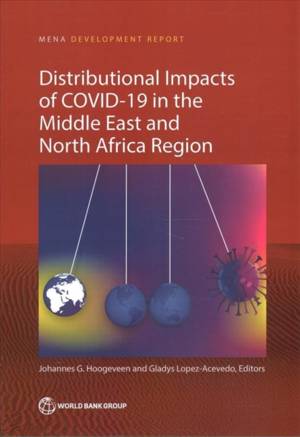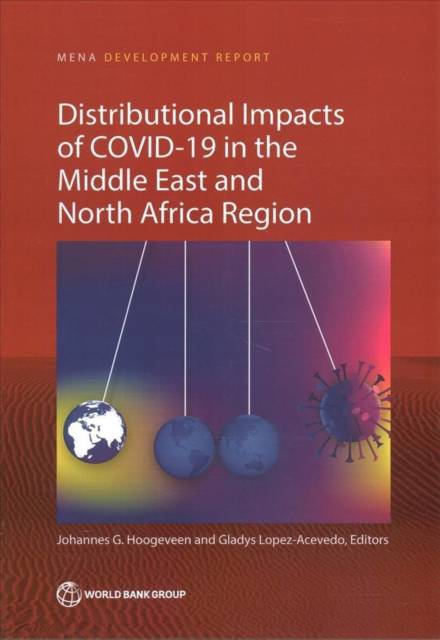
Bedankt voor het vertrouwen het afgelopen jaar! Om jou te bedanken bieden we GRATIS verzending (in België) aan op alles gedurende de hele maand januari.
- Afhalen na 1 uur in een winkel met voorraad
- In januari gratis thuislevering in België
- Ruim aanbod met 7 miljoen producten
Bedankt voor het vertrouwen het afgelopen jaar! Om jou te bedanken bieden we GRATIS verzending (in België) aan op alles gedurende de hele maand januari.
- Afhalen na 1 uur in een winkel met voorraad
- In januari gratis thuislevering in België
- Ruim aanbod met 7 miljoen producten
Zoeken
Distributional Impacts of Covid-19 in the Middle East and North Africa Region
€ 73,45
+ 146 punten
Omschrijving
COVID-19 is one of multiple crises to have hit the Middle East and North Africa (MENA) region in the decade following the Arab Spring. War, oil price declines, economic slowdowns, and now a pandemic are tearing at the social fabric of a region characterized by high rates of unemployment, high levels of informality, and low annual economic growth. The economic costs of the pandemic are estimated at about US$227 billion, and fiscal support packages across MENA are averaging 2.7 percent of GDP, putting pressure on already weak fiscal balances and making a quick recovery challenging. Even before the COVID-19 pandemic, MENA was the only region in the world experiencing increases in poverty and declines in life satisfaction. Distributional Impacts of COVID-19 in the Middle East and North Africa Region investigates how COVID-19 changed the welfare of individuals and households in the region. It does so by relying on phone surveys implemented across the region and complements these with microsimulation exercises to assess the impact of COVID-19 on jobs, income, poverty, and inequality. The two approaches complement and corroborate each other's results, thereby making the findings more robust and richer. This report's results show that, in the short run, poverty rates in MENA will increase significantly and inequality will widen. A group of 'new poor' is likely to emerge that may have difficulty recovering from the economic consequences of COVID-19. The report adds value by analyzing newly gathered primary data, along with projections based on newly modeled micro- and macrosimulations, and by identifying key issues that policy makers should focus on to enable a quick, inclusive, and sustained economic recovery.
Specificaties
Betrokkenen
- Uitgeverij:
Inhoud
- Aantal bladzijden:
- 278
- Taal:
- Engels
- Reeks:
Eigenschappen
- Productcode (EAN):
- 9781464817762
- Verschijningsdatum:
- 26/01/2022
- Uitvoering:
- Paperback
- Formaat:
- Trade paperback (VS)
- Afmetingen:
- 178 mm x 254 mm
- Gewicht:
- 671 g

Alleen bij Standaard Boekhandel
+ 146 punten op je klantenkaart van Standaard Boekhandel
Beoordelingen
We publiceren alleen reviews die voldoen aan de voorwaarden voor reviews. Bekijk onze voorwaarden voor reviews.








